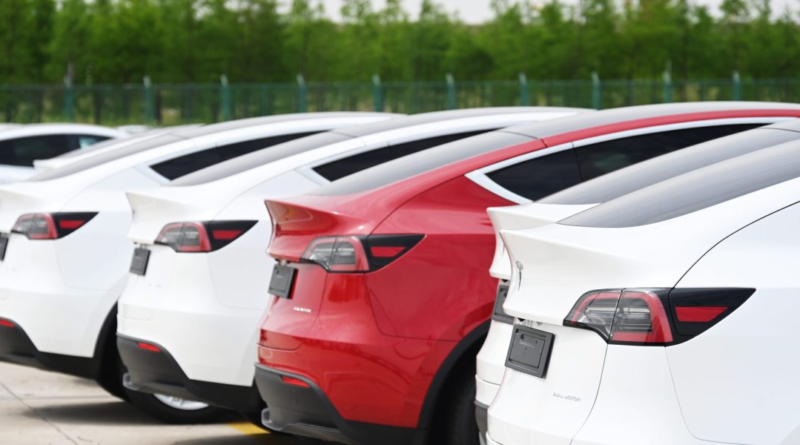The cost of buying a used electric car is plummeting—and that’s great news for mass adoption, but bad news if you already bought one
New electric cars are cheaper than ever, and a robust used market is finally giving prospective buyers budget options. That’s good news for EV adoption overall, but frustrating for owners who bought EVs at high prices and are seeing their cars lose value at alarmingly high rates in the resale market.
“Last year was really marked in terms of price declines… That burns people that already bought [an EV],” Jeremy Robb, a senior director at Cox Automotive, told Fortune. “Unless you leased [your EV], you’ve lost a lot of money on your asset, and that’s going to put a very bad taste in your mouth.”
New data from EV battery analysis and research firm Recurrent found that used EV prices for leading models had fallen 27% year over year as of this month, with some models selling for as low as $10,000. For the first time, prospective buyers are awash with budget options, and many used EVs are roughly as cheap as comparable gas-powered cars.
But a buyers’ market comes at the expense of existing EV owners who bought before prices started to come down. Their cars are losing value at record rates, and EV buyers are leasing vehicles to protect them from losing value in the resale market if used EV prices continue to slide.
As recently as last year, it was hard to find a new electric car for less than $50,000. But over the past few months, automakers have cut prices; the used market has helped fill the gap for budget-conscious buyers; and new tax incentives are allowing dealers to cut up to $4,000 off the sticker price of some used and leased EVs at the point of sale—bringing prices down even further.
Recent data from Cox Automotive showed a 13% annual drop in EV sale prices as of February. Experts told Fortune that Tesla’s price cuts deserve most of the credit—or blame, if you’re an EV owner whose car’s resale value has fallen because of the discounts.
“With Tesla, like American Airlines—at least back in the day—they sort of set the pricing model for the industry… As they have come down on their prices, that is putting pressure on everyone else,” Tyson Jominy, a vice president in the data and analytics division at J.D. Power, told Fortune. “[Tesla] has about 60% of the market share of EVs, so when they cut prices the way they have, everyone’s going to cut prices to keep up.”
Data from Cox Automotive shows that EV owners are leasing their cars, rather than buying them outright, at far higher rates than gas-powered auto owners. 54% of non-Tesla EVs are purchased via lease, according to Jominy, compared to just over 20% for the overall auto market. (Tesla has its own closed-loop leasing program, and leases its vehicles at lower rates than the rest of the EV market.)
“That’s how you get the vehicle. If you’re worried about residual, you worry about future [value], well, your payment is already locked in—so at that point it’s on the bank, that risk,” Jominy said.
While owners who lease their cars have shielded themselves from falling resale values because the bank is taking on the car’s lost resale value, drivers who bought new EVs outright are hurting from high depreciation rates compared to gas-powered cars.
“Over the last year, US EV prices were down about 20%. But used [gas-powered] vehicles were down about almost 5%. So, 15-point differential there,” Robb said.
For all their negative impact on early EV adopters, falling prices are a bullish sign for EV adoption at large.
“On the longer horizon, it is a good thing for adoption,” Robb said. “It brings the cost down. More people can get into [an EV]. Used EV sales are, like, 2% of the total market, and new EV sales are close to 10%… There’s a lot more opportunity to tap into the market than what we’ve got today.”




